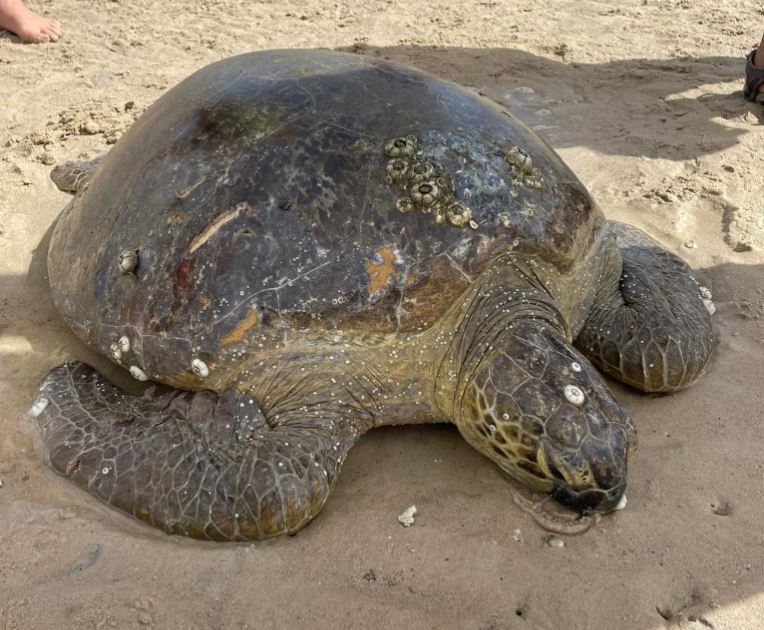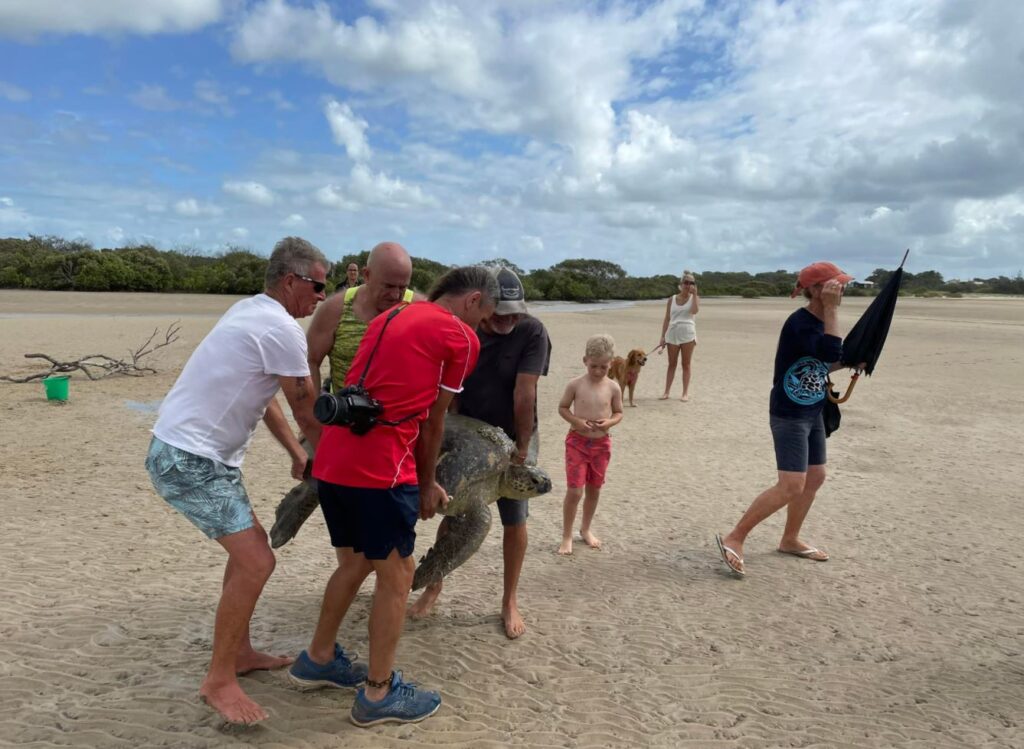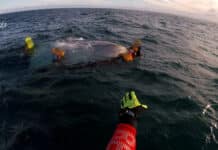
Community concern for endangered marine creatures was on display over the weekend when residents thought they had spotted a ‘stranded’ turtle but a local organisation has explained the behaviour.
Team members from Sea Turtle Alliance were called upon after concerned residents had reported what they thought was a stranded green sea turtle on the beach.
However President Ainsley Gatley said, after inspecting the situation, the turtle was found to be simply getting in some vitamin D before heading back out to sea.
“This particular turtle was healthy, she looked to be at a good weight and there were no signs that she was sick so we weren’t at all concerned,” she said.
“What many people may not realise is that sea turtles, like most reptiles, need to regulate their temperatures.
“This is actually natural behaviour for turtles, they come to the shore and bask in the sun and then they will head back to the ocean at the next high tide.”
Ainsley said as an extra precaution and after assessing the turtle under the guidance of trained STA volunteers, a small group moved the creature closer to the water.
“First we were able to tag her, which will help us to keep track and document her movements into the future,” she said.
“Due to community concerns we ended moving the turtle closer to the water – the helpers did a great job.
“Once she got there, she swam off safely.”

Ainsley said for those who come across a “stranded” sea turtle, the best thing to do was contact authorities and keep your distance.
“We want to get the message out that this beach “stranding” is actually natural behaviour and we will see it happen more as the months get cooler,” she said.
“Turtles will often be up on salt flats, mud flats or in amongst mangroves at the low tide for a rest or sun bake.
“It’s not necessary to wet the turtle or provide it with shade.
“Give the turtle space and contact the marine animal strandings hotline on 1300 130 372, which will alert us to the situation.”







